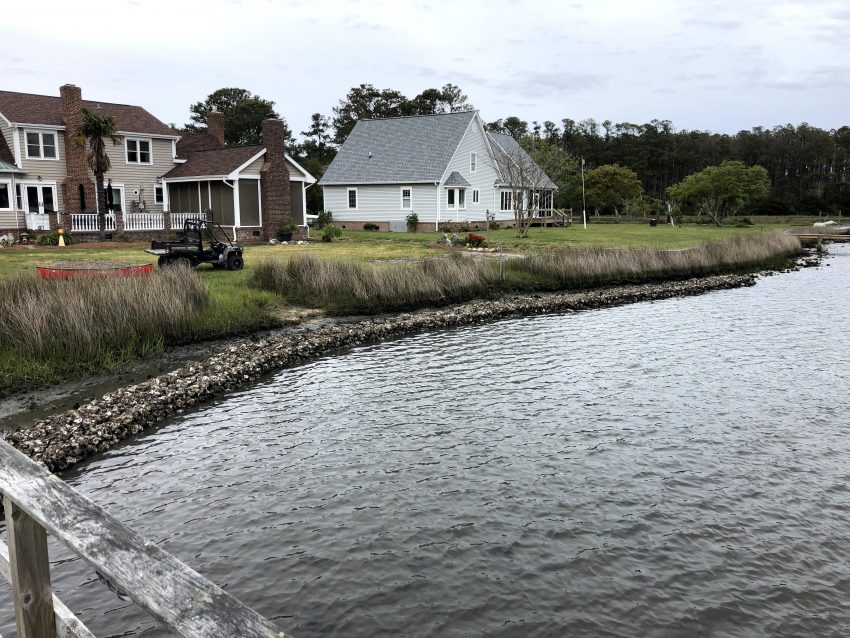
TOPSAIL, N.C. – The Town of Topsail Beach is partnering with the North Carolina Coastal Federation to install four living shoreline demonstration projects to reduce soundside erosion and maintain valuable fisheries habitat. Restoration Systems will begin construction on the first phase of the living shoreline this week along Banks Channel, near the soundside public access at Rocky Mount Ave.
Wrapping up a $26 million post-Hurricane Florence storm damage reduction project, the Town is now poised to create storm resiliency projects along some of the island’s soundside properties. The Town will use a portion of a $5 million state grant provided in 2019 through Senate Bill 95, granting about $1.6 million equally among Topsail Beach, Surf City and North Topsail Beach to complete the living shoreline projects.
“We are very grateful for the opportunity to be proactive in creating island wide readiness and resiliency projects and address some long-standing issues of flooding and shoreline erosion,” said Mike Rose, town manager for Topsail Beach. “We’ve worked very hard on our ocean-side projects, and we are very excited to partner with the federation to focus some attention and efforts on the other side of our island.”
This living shoreline project will include the construction of a sill structure built from bagged oyster shell, which will provide erosion control and serve as a living reef for new oysters. The shoreline landward of the sill will be restored with marsh species, providing critical habitat for fish and other estuarine animals. The project will serve as a training tool and demonstration for property owners, marine contractors and other shoreline professionals. An opening will be included to allowed for continued water access for canoes, kayaks and other small watercraft.
“The work the Coastal Federation is doing to promote living shorelines is incredibly important for our coast,” said Mary-Margaret McKinney, director of coastal restoration for Restoration Systems, LLC. “Every time a landowner chooses to protect their property with a living shoreline instead of a hardened bulkhead it’s a win for their property, their neighbors’ properties, the plants and animals that live at the land-water interface, and coastal resilience as a whole.”
Living shorelines reduce the impact of waves through various techniques, offering an effective and environmentally friendly solution to estuarine shoreline erosion. Recently, the N.C. Division of Coastal Management, in coordination with other state and federal agencies revised the Coastal Area Management Act (CAMA) General Permit for marsh sills. The amended General Permit now makes the process of obtaining a living shoreline permit quicker and simpler. For more information on the revised General Permit visit https://www.nccoast.org/project/advocating-living-shorelines/.
Learn more at https://www.nccoast.org/project/topsail-beach-living-shoreline/.
For more information on this project, please contact Tracy Skrabal at tracys@nccoast.org, or 910-231-6601.
